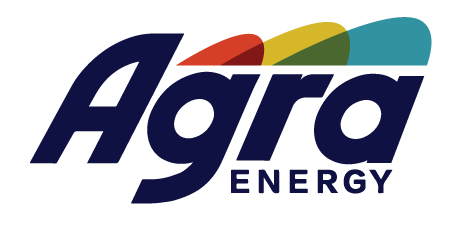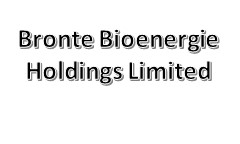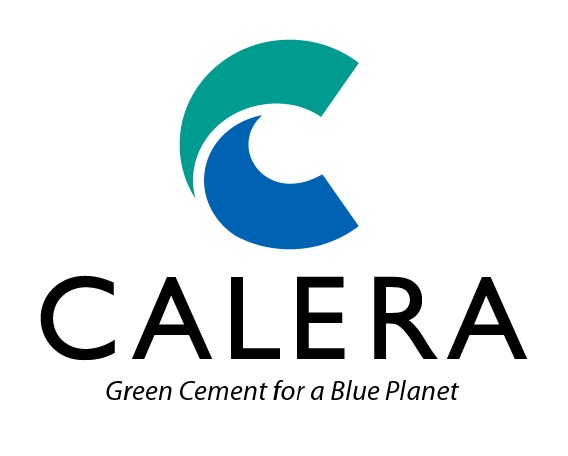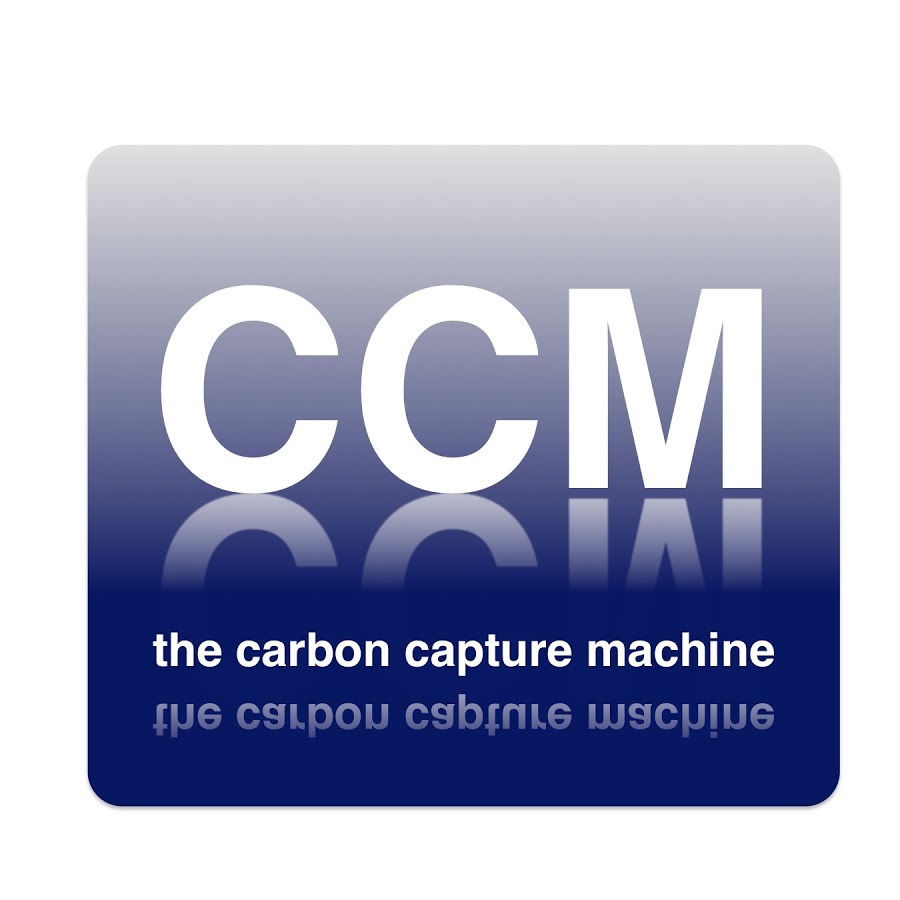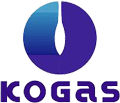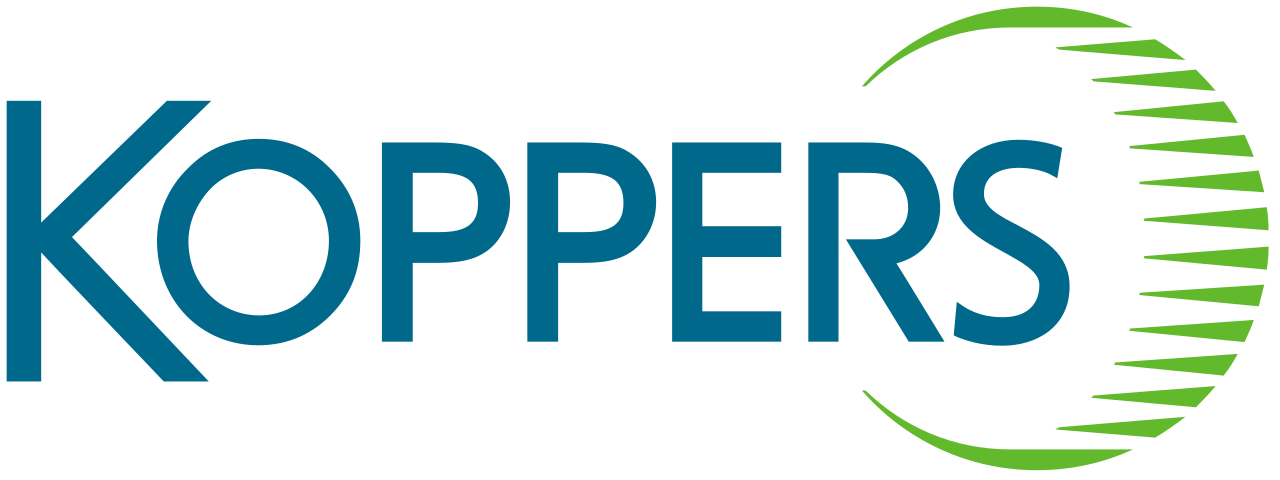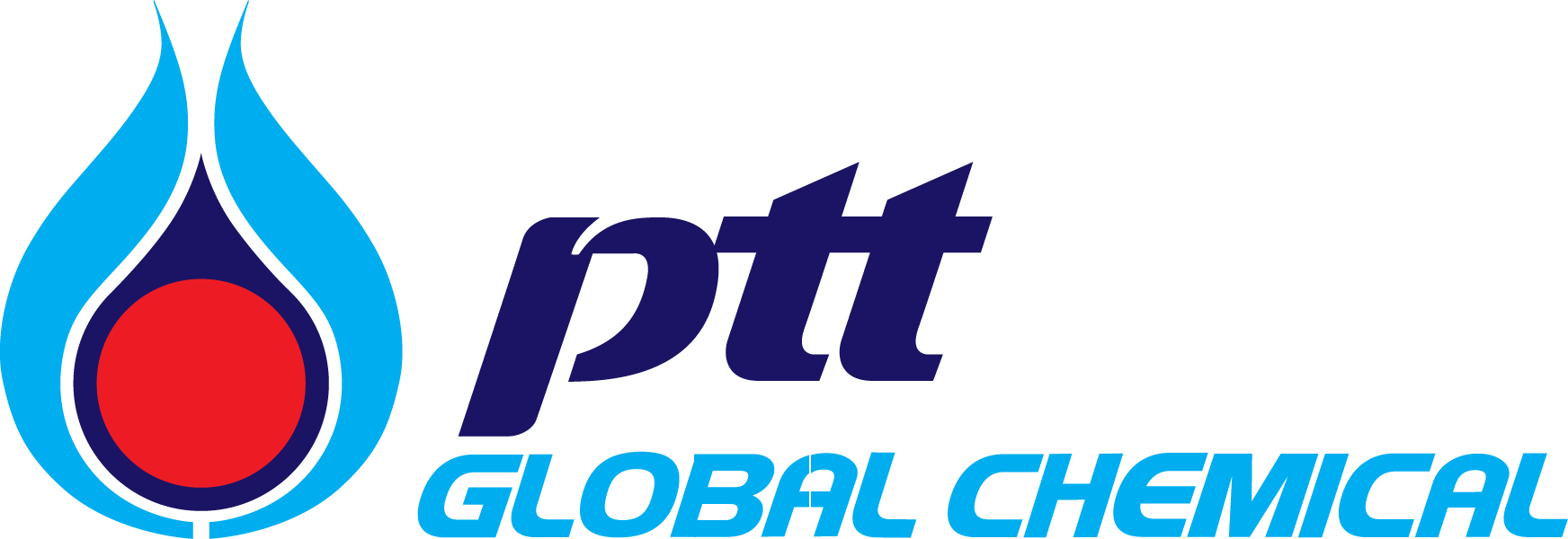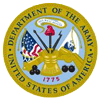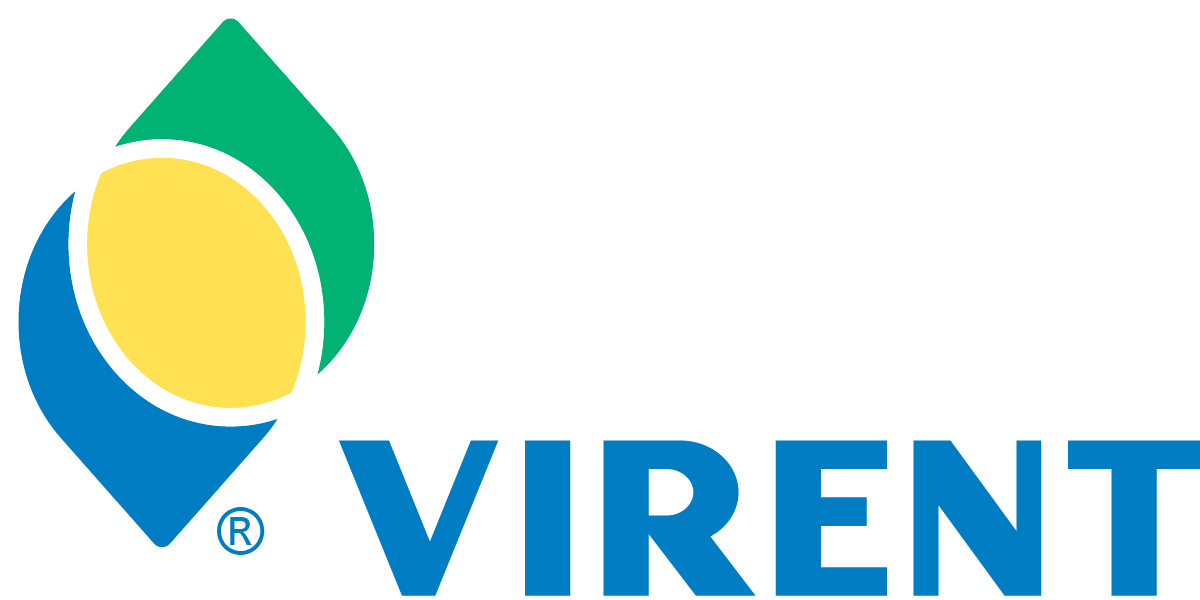Feasibility Study
The engineering feasibility study phase generally consists of a technical and economic analysis to investigate the probable outcomes of a project. The level of project definition and the amount of engineering is advanced beyond the conceptual engineering phase to increase the level of certainty of the analysis. This point in a project is an important decision gate to determine if the project should move forward.
Select preferred development options
A common activity during the Feasibility Study phase is to evaluate different process options and ultimately select a process scheme that will be the basis for moving forward with the project. Feasibility analysis may be carried out on one or more options in order to select the preferred approach.
Shown below is an example of a typical process that is incorporating major aspects of chemical engineering.
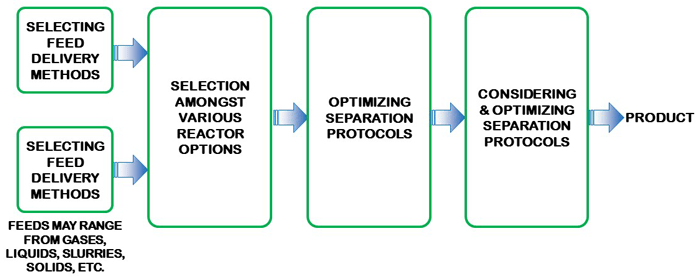
Process simulation (Aspen Plus or Aspen Hysys)
The Feasibility Study Phase includes the development of detailed process simulations to define the process or process options. At this point the simulations are generally complex and include all major unit operations.
Unitel Technologies has extensive experience in the use of process simulation software. Over the last 20 years, we have worked on a wide variety of projects and processes requiring process simulations. Our broad experience in process simulation ranges from petroleum refining to inorganic chemical syntheses to biomass based processes.
Unitel Technologies currently licenses the AspenONE Engineering suite which includes Aspen Plus and Aspen HYSYS. We also utilize other software platforms including ChemCAD and Pro II. In addition, Unitel uses the Outokumpu HSC Chemistry software to generate phase stability and reaction equilibrium data.
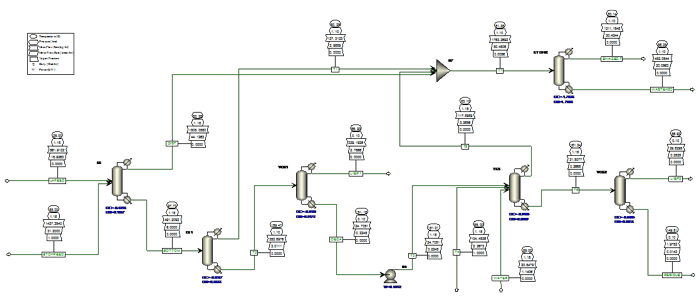
Heat and Material Balance (HMB)
Detailed heat and material balances are generated in the Feasibility Study phase corresponding to the process simulations.
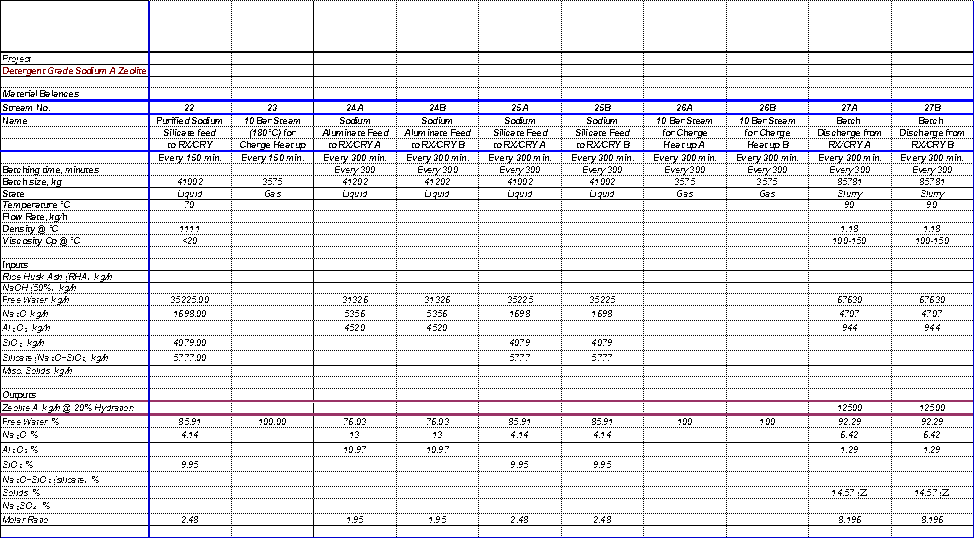
Reactor Selection
Reactor type selection and design is usually an important aspect of the Feasibility Study phase of a project. Reactor type selection can have a significant impact on other unit operations of a process system and is a critical item to be selected early in the process development effort.
Over the years, engineers at Unitel Technologies have accumulated extensive knowledge about a variety of reactors that can be utilized for different processes.
Lab Scale Reactors
Spectrum Gradientless Reactors
- Configured for homogeneous catalytic reactions
- Configured for heterogeneous reactions…kinetic basket
- Configured for heterogeneous reactions…static basket
Fixed Bed Tubular Reactors
Pilot Plant & Demo Plant Reactors
Hydroprocessing Reactors
- Fixed Bed Isothermal Reactors
- Fixed Bed Adiabatic Reactors
- Ebulliating Bed Reactors
Fischer-Tropsch Reactors
- Multiple Fixed Bed Adiabatic Reactors
- Multi Tube Boiling Water Reactors
- Fluidized Bed Reactors
Polymerization Reactors
- Stirred Tank Batch Reactors
- Stirred Tank Continuous Reactors
- Stirred Tank Cascading Reactors
- Plug Flow Tubular Reactors
- Loop Reactors
- Vapor Phase Fluidized Bed Reactors
Circulating Fluidized Bed Reactors
- Cat Cracking Reactors
- Biomass Pyrolysis Reactors
Separation Equipment Selection
Similar to reactor selection, separations definition and selection early in the development effort is critical in determining the viability of a process.
Unitel engineers have extensive experience in optimizing separation equipment for various applications in the gas phase, liquid phase and multi-phase environments.
Some of the separation equipment that we have used in our previous projects are noted below.
Distillation
- Multi component distillation operations
- Reactive distillation operations
- Extractive distillation operations
Stripping
Adsorption/Desorption
Absorbtion/Scrubbing/Desorbtion
Evaporation/Crystallization
Membrane Separations
Process Flow Diagrams
Detailed process flow diagrams are generated during the Feasibility Study phase corresponding to the process simulations.
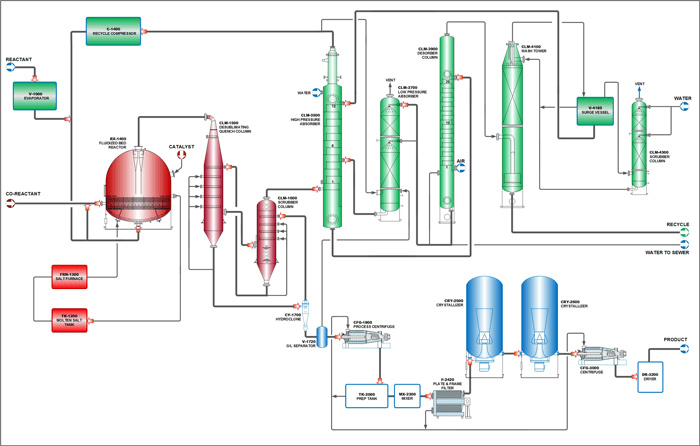
Equipment Lists/Define and Size Major Equipment
In major process equipment is defined in the Feasibility Study phase of the project. A major equipment list specifying the key process parameters of each piece of equipment is developed. This list is an essential input to the cost estimation effort.

Preliminary Piping and Instrumentation Diagrams (P&IDs)
Depending on the type of process or project, Preliminary Piping and Instrumentation Diagrams (P&IDs) may be generated in the Feasibility Study Phase. P&ID development is an important tool in defining the instrumentation and process control hardware requirements of a project. This is especially important in pilot plants and demo plants where the cost of instrumentation and control hardware can be a much higher percentage of the total project cost than in a commercial installation.
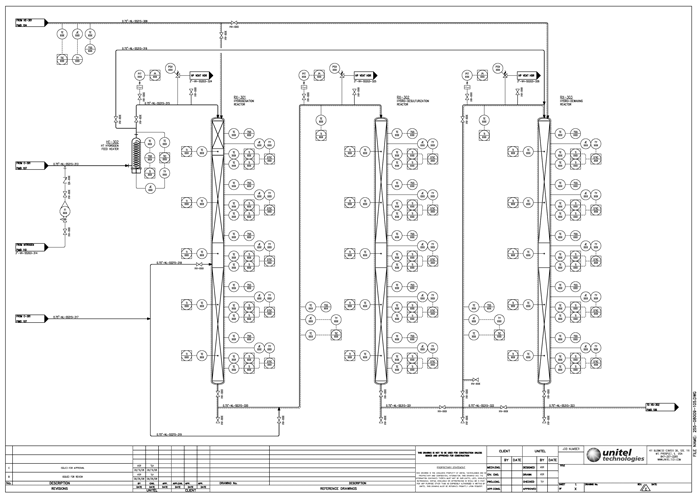
Preliminary Plot Plan Development
A preliminary plot plan is developed in the Feasibility Study phase in order to determine if a proposed location is suitable for the project. The preliminary plot plan also aides in the cost estimating effort.
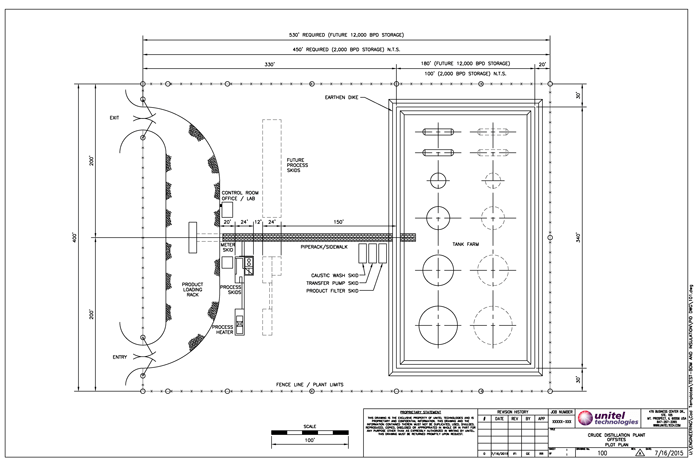
Cost Engineering – AACE Class 4 capital estimates
Unitel Technologies employs a number of methods and tools to efficiently develop cost estimates with available data and project information. Our knowledge and history with pilot plant, demonstration plant and other modular systems combined with our broad process industry experience provides us a rich database to develop cost estimates during early project phases in which the level of detailed information is limited.
We typically use factored models for the Feasibility Study phase as the primary cost estimating methodology. The factored models may be equipment based or P&ID material based where the cost of instrumentation is leveraged along with equipment in the cost estimate. Our models employ our in-house major equipment and instrumentation data base and factoring methods combined with the ASPEN Cost Estimator.
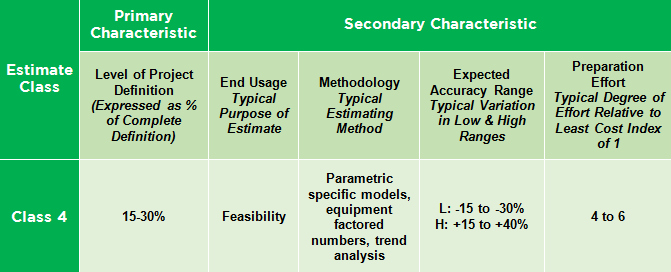
Operating Cost Development
In addition to capital cost estimating, operating cost development is a key parameter in determining the feasibility of projects. Operating costs including utilities, maintenance, personnel, chemicals, catalysts and other key inputs based on the project or process are systematically developed during the Feasibility Study phase.
Unitel Technologies can provide operating cost data along with capital cost data to the client as an input to an economic model or we can develop an economic model for the client as a value added service.
